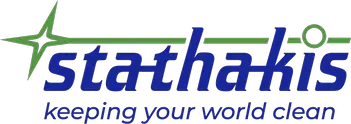.webp?width=991&height=551&name=Noncompliance%20Janitorial%20Cleaning%20(1).webp) When selecting a janitorial service provider, it’s crucial to look beyond surface-level cleanliness. Non-compliance with regulations can expose your business to significant risks, including legal penalties, safety hazards, and reputational damage. Here’s why partnering with a legally compliant cleaning company is essential for safeguarding your organization.
When selecting a janitorial service provider, it’s crucial to look beyond surface-level cleanliness. Non-compliance with regulations can expose your business to significant risks, including legal penalties, safety hazards, and reputational damage. Here’s why partnering with a legally compliant cleaning company is essential for safeguarding your organization.
1. OSHA & Bloodborne Pathogen Compliance
Janitorial staff often encounter biohazards, especially in healthcare and industrial settings. The Occupational Safety and Health Administration (OSHA) mandates that cleaning companies have a comprehensive Exposure Control Plan, provide proper training, and maintain records to protect workers from bloodborne pathogens like HIV and Hepatitis B. Failure to adhere can result in severe health risks and substantial fines.
2. Proper Chemical Handling and SDS Labeling
Compliance with the Globally Harmonized System (GHS) requires accurate labeling and accessible Safety Data Sheets (SDS) for all cleaning chemicals. This ensures that janitorial staff and facility occupants are informed about potential hazards, promoting a safer work environment.
3. Legal Workforce Verification
Employing undocumented workers or misclassifying employees as independent contractors (1099) instead of W-2 employees can lead to legal complications. Legitimate cleaning companies conduct thorough I-9 verifications and classify their workers appropriately, ensuring compliance with labor laws and reducing liability for your business.
4. Comprehensive Background Checks
Security is paramount, especially when cleaning staff have access to sensitive areas. Reputable janitorial services perform extensive background checks and drug screenings to ensure trustworthy personnel are maintaining your facility.
5. Adequate Insurance Coverage
A professional cleaning company should carry sufficient insurance, including general liability and workers’ compensation. This protects your organization from potential claims arising from accidents or damages during cleaning operations.
6. Industry Certifications and Training
Certifications like the ISSA Cleaning Industry Management Standard (CIMS) indicate a company’s commitment to best practices, including compliance with health and safety regulations. Such credentials demonstrate that a janitorial service is equipped to meet the specific needs of your facility.
7. Ongoing Safety & Compliance Training
Any effective safety program starts with documented, consistent training. Your janitorial company shouldn’t take a one-size-fits-all approach. Instead, they should understand your facility’s unique layout, risk factors, compliance requirements, and operational environment—then tailor their training accordingly.
Whether your business requires OSHA compliance, HIPAA sensitivity, hazardous material handling, or specialized disinfection, your cleaning partner should provide ongoing, site-specific training to its employees. This helps ensure protocols are consistently followed, reduces the risk of costly incidents, and minimizes your exposure to legal and safety liabilities.
A professional cleaning company should be able to show you records of what training has been completed, when refreshers are given, and how staff are evaluated to ensure continuous compliance.
8. Transparent Operational Systems
A compliant cleaning company maintains clear documentation, including training records, inspection reports, and communication logs. This transparency allows for accountability and ensures that cleaning practices meet established standards.
Conclusion
Partnering with a legally compliant janitorial service is not just about cleanliness—it’s about protecting your business from potential liabilities. Ensuring that your cleaning provider adheres to all relevant regulations safeguards your employees, clients, and reputation


